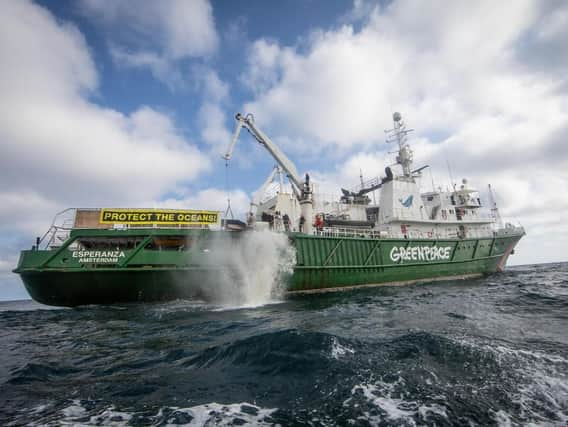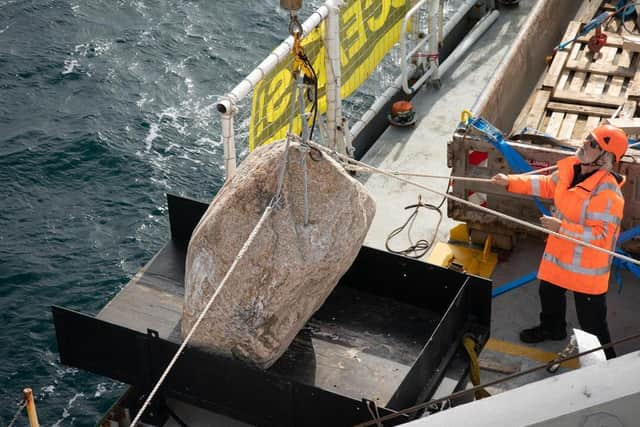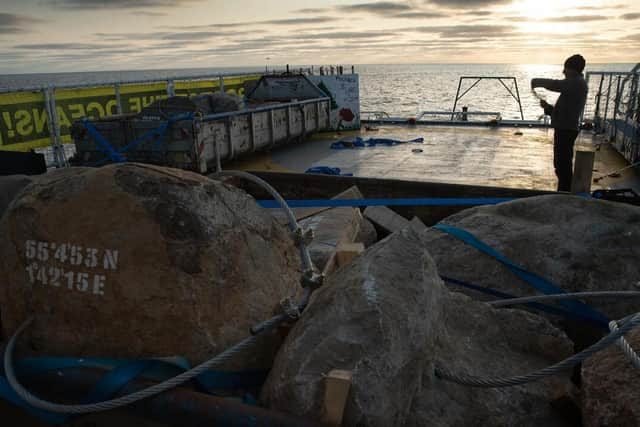Campaigners drop boulders on Dogger Bank in bid to stop industrial fishing


Activists on the Greenpeace ship Esperanza have begun placing the rocks inside the Dogger Bank protected area to try and stop bottom trawlers entering almost 50 square miles of seabed which is home to sandeels and crabs, flatfish. They in turn are a vital food source for porpoises and seabirds.
Greenpeace says there are no permanent restrictions on fishing in the area, and its seabed is protected in “name only”.
Advertisement
Hide AdAdvertisement
Hide AdEarlier this month concerns were raised locally after an infamous supertrawler, which can catch hundreds of tonnes of fish a day, was spotted in international waters off Flamborough Head along with three other mega-sized vessels.


Bridlington fisherman Rolo Rollisson, 58, used to go netting on Dogger Bank in the early 1990s, before the cod and haddock disappeared and the port switched to fishing for crab and lobster. He said: “Good on Greenpeace - put down as many as you can, it’ll rip the trawl nets to bits.
"Dogger Bank is one of the biggest spawning grounds. There are little codlings, so if they are there pelagic trawling, nothing is going to get reproduced.
“It is what basically is ruining fishing. It’s all the big factory ships scooping everything up. We haven’t got a chance.”
Advertisement
Hide AdAdvertisement
Hide AdShaun Wingham, from Withernsea, lost his livelihood after the North Eastern Inshore Fisheries and Conservation Authority revoked his intertidal licence last year, following an EU ban on shore fishing for sea bass. Mr Wingham also supported the actions of Greenpeace.


He said: “Somebody did something similar years ago, dropping fridges and freezers in - boulders are better because they will last.
“Everybody just thinks it’s a free for all; it wants protecting for our boats.”
Greenpeace campaigner Chris Thorne said they could not sit idly by while supposedly protected parts of the ocean were destroyed.
Advertisement
Hide AdAdvertisement
Hide AdHe said: “How can you continue to allow bottom trawlers to plough the seabed in a protected area designed specifically to protect the seabed?Allowing bottom trawling in a protected area established to protect the seabed is equivalent to allowing bulldozers to plough through a protected forest.”
The Dogger Bank was designated a Special Area of Conservation in 2017. However Greenpeace says the area is only briefly closed to allow scallops to spawn.
Last year a number of environmental bodies lodged legal complaints against the UK, Dutch and German governments over their failure to properly protect the area from bottom trawling.
Greenpeace said they had commissioned an impact assessment from an independent body to examine the potential impact of their activity. It concluded that there would be no significant impact.
Comment Guidelines
National World encourages reader discussion on our stories. User feedback, insights and back-and-forth exchanges add a rich layer of context to reporting. Please review our Community Guidelines before commenting.